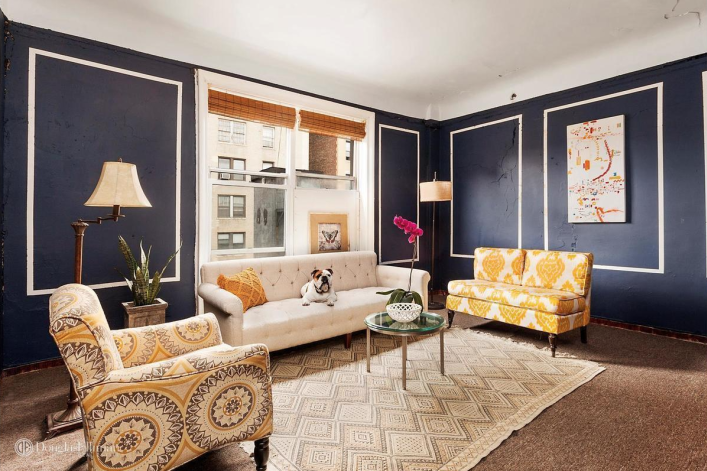Want to combine two apartments? Here's how to pay for it

380 Riverside Drive #MN is being sold as unfinished combination of two apartments. The asking price is $2,150,000.
In New York City, it can be tough to find an apartment with more than three bedrooms. So what are large families that need more space supposed to do?
One solution is to buy two smaller apartments and combine them, but if you're considering this route, it's important to understand how it's done before pulling the trigger.
“While financing an apartment combination is fairly common these days,” says Brittney Baldwin, vice president of National Cooperative Bank, “you could be in for some surprises if you’ve never done it before.”
There are two routes you may take and they have different impacts on financing.
Looking to buy a co-op apartment? National Cooperative Bank offers competitive rates and easy pre-qualification. With 40 years of lending to buyers in New York City, NCB is the bank for co-ops. After all, Cooperative is our middle name! Call us at (202) 349-7455 or email Ryan Greer [email protected] #507534. Equal Housing Lender.
If you intend to combine apartments right away
After you to go to contract on the apartment(s), apply for a mortgage. An appraiser will decide what the apartments will be worth after you make these necessary renovations: Removing the interior wall that joins the two units and taking out one of the kitchens to make it a legal single-family apartment. Keep in mind that the appraised value at this early phase will likely be a good deal less than what the apartment will be worth when your renovations are complete.
Also you should know that the loan-to-value ratio will be lower than a traditional mortgage, so budget accordingly.
“At National Cooperative Bank, we have a 65 percent loan-to-value ratio of the future estimated value on an adjustable-rate mortgage. So if the apartments appraise at $1 million, you can borrow a maximum of $650,000,” Baldwin says.
Finally, you’ll need to leave some money in escrow until the apartments are legally combined. "Legally combined" is not the same as "fully renovated."
“We hold back 1.5 times the cost to combine units," Baldwin says. "This is based on the borrower’s contractor’s estimate of the cost to remove one kitchen and the connecting wall. Once that’s done, an appraiser goes back out to check, and the escrow is released.”
If you don’t intend to combine apartments right away
If you plan to hold off renovating for a while, you’ll need to finance the apartment that’s not your primary residence as an investment unit.
"For a loan on an investment purchase, we like to see a 30 percent owner-occupied building, a maximum loan-to-value ratio of 75 percent, a minimum credit score of 720 (FYI, for a primary residence it would be 700), as well as 12 months of principal, interest, taxes, and insurance in reserve," Baldwin says. “Once the owner decides to combine the units, we can look to refinance the property into a single loan."
Brittney Baldwin (646-201-4714) is vice president at National Cooperative Bank in Manhattan.
- Check today's rates on NYC co-op, condo and superintendent unit loans
- Get a personalized quote
- Apply online for mortgage pre-approval
More from National Cooperative Bank:
Top 12 questions New Yorkers ask their mortgage bankers
Can you get a home equity loan on a co-op?
5 ways to get a lower mortgage rate
Get the 411 on financing an investment property
Jumbo loans demystified: What NYC buyers need to know























